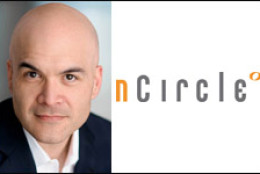Cybersecurity
-
Homeland Security is getting serious about making sure all federal agencies get on board with continuous network monitoring. Keeping a vigilant eye out is the best way to fend off cyber attacks, DHS officials say.
June 27, 2012 -
Lawmakers have about 23 real work days left before the end of the fiscal year to pass USPS reform, comprehensive cyber, DoD authorization and all the 2013 spending bills. Experts hold out little hope even after the passage of the FDA bill and the expected approval of the highway legislation.
June 27, 2012 -
T.K. Keaninni, chief technology officer for nCircle joins host John Gilroy to talk about how his company can help your agency with its network security issues. June 26, 2012
June 26, 2012 -
The IT Alliance has called for an international call for cooperation between your agency and the private sector. The organization of IT security groups from the U.S., Europe and Japan. The statement, called "Recommended Government Approaches to Cybersecurity," includes 12 points, including transparency and the need to to adapt to market changes.
June 26, 2012 -
MI-5 chief Jonathan Evans said government secrets, infrastructure and intellectual property are at stake. He described the scale of the threats as "astonishing" in his first public speech in two years, just ahead of the London Olympics.
June 26, 2012 -
A data breach at the U.S. Commodity Futures Trading Commission in May did not compromise any trading or market data, the agency's chief information officer John Water said. CFTC said it will implement additional security controls and increase training for employees. The agency will also provide identity protection for employees through a credit monitoring company.
June 25, 2012 -
Five Republican senators have introduced a bill that would require companies that store your personal information to report any security breaches to you as quickly as possible.
June 25, 2012 -
Rosemary Wenchel is the new deputy assistant secretary for cybersecurity coordination at DHS. She replaces Adm. Mike Brown, who retired in January.
June 22, 2012 -
A coalition of IT industry associations are calling for a consistent set of global cybersecurity policies.
June 22, 2012 -
A Nazi hacker group is claiming credit for shutting down Twitter yesterday morning. The micro-blogging site said the outage was caused by a server bug, not hackers.
June 22, 2012 -
House Intelligence Committee Chairman Mike Rogers said he'd be "very careful" about assigning blame for the attacks on Iran's nuclear program. Half of what's been reported in the media on the matter is untrue, he said.
June 22, 2012 -
The U.S. Agency for International Development saw their FISMA scores drop to an F grade. Jerry Horton, USAID's chief information officer, said they will fix their shortcomings this year. June 21, 2012
June 21, 2012 -
NIST, DHS experts say protecting smartphones and tablets shouldn't be any different than securing typical desktop or laptop computers. DHS will release mobile security reference architecture to help agencies understand common concepts. NIST is updating security control guide with 250 new requirements, including mobile controls.
June 21, 2012 -
The Air Force has awarded Northrop Grumman a three-year contract to upgrade cryptography in the country's intercontinental ballistic missile system.
June 21, 2012 -
The National Security Agency and the CIA helped Israel develop the "flame" computer virus.
June 20, 2012





